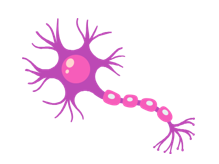CELL DIVERSITY
1/24
There's no tags or description
Looks like no tags are added yet.
Name | Mastery | Learn | Test | Matching | Spaced | Call with Kai |
|---|
No analytics yet
Send a link to your students to track their progress
25 Terms
Cell Diversity
Different types of cells in the human body.
Nerve Cells
Very long with many branches on both ends.
Neurons
Nerve cells are also known as _____
Egg Cells
Also known as the female reproductive cells.
Oocytes
Egg cells are also known as _____
Bone cell
It is the toughest cell in the body and provide structural framework.
Phosphate and calcium
Bone cells are also bound by 2 things.
Osteoblasts, Osteocytes, Osteoclasts
Three types of bone cells.
Adipose Cells
Are specialized cells that store fat for energy, are found in areas such as the soles, palms, and buttocks, and help reduce friction while cushioning the body.
Adipocytes
Adipose cells are also called as _____
Epithelial Cell
Are cells that cover internal and external surfaces of the body, are found in areas such as the skin, respiratory tract, and oral cavity, and occur in various shapes including cuboidal, squamous, and columnar.
Blood Cells
Are circulating cells with a limited lifespan that include erythrocytes (red blood cells), leukocytes (white blood cells), and thrombocytes (platelets), and are responsible for oxygen transport, immune defense, and blood clotting.
Muscle Cells
Are long, contractile cells that enable movement, contain the proteins actin and myosin, and occur in three types: skeletal, cardiac, and smooth.
Cartilage Cells
Also called chondrocytes, are found in the ears, joints, and nose, and are surrounded by flexible material that is not calcified like bone.
Chondrocytes
Cartilage cells are also called as ______
Sperm Cells
Also known as male reproductive cells, are haploid cells with a head, midpiece, and tail (flagellum), and contain the enzyme hyaluronidase to help penetrate the egg.
Stem Cells
Are undifferentiated cells that can develop into any other type of cell and play a key role in tissue repair and regeneration.
Cancer Cells
Are abnormal cells that arise from mutations, divide uncontrollably, lose the ability to undergo apoptosis (programmed cell death), and often proliferate rapidly in an invasive manner.
Fungal Cells
Are non-photosynthetic cells with a chitin-based cell wall and function as decomposers or parasites.
Protozoa
Are unicellular eukaryotic organisms belonging to the Kingdom Protista, with examples such as Entamoeba histolytica, which causes amoebiasis.
Kingdom Protista
The kingdom to which Protozoa belongs.
Eubacteria
Are unicellular prokaryotes belonging to the Kingdom Monera and occur in various shapes, including cocci (spherical), bacilli (rod-shaped), and spirilla (spiral).
Kingdom Monera
The kingdom to which Eubacteria belongs.
Nerve Cell
What kind of cell is this?

Egg Cell
What kind of cell is this?
